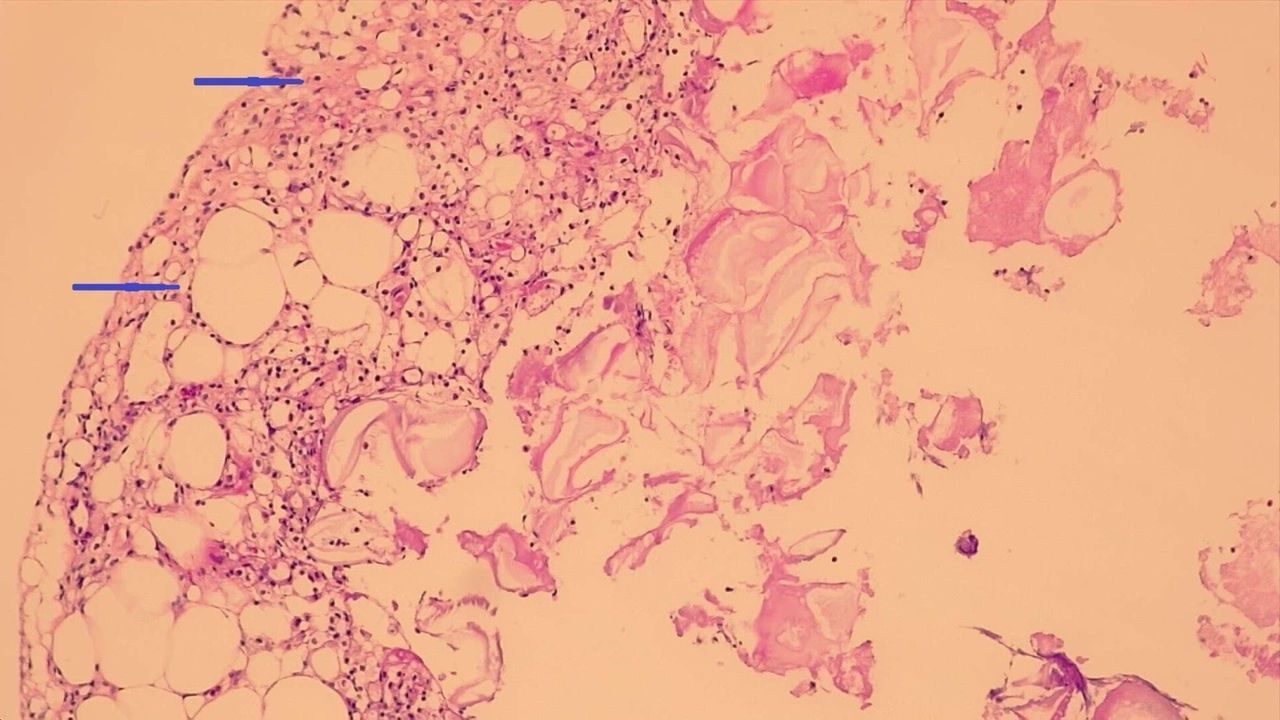
Mesenteric Panniculitis might sound like a mouthful, but understanding it can be straightforward. This rare inflammatory condition affects the fatty tissue of the mesentery, which is the fold of tissue attaching the intestines to the abdominal wall. Symptoms can vary widely, from abdominal pain and bloating to fever and weight loss. While the exact cause remains unknown, factors like autoimmune disorders, infections, and trauma might play a role. Diagnosis often involves imaging tests like CT scans, and treatment can range from medications to manage inflammation to more specific therapies based on underlying causes. Curious about more details? Let's dive into 50 intriguing facts about this condition!
Key Takeaways:
- Mesenteric panniculitis is a rare inflammatory condition affecting the abdomen. It can cause symptoms like abdominal pain, weight loss, and bloating. Treatment options include medication, dietary changes, and regular check-ups.
- Understanding the symptoms and treatment options for mesenteric panniculitis is important for managing the condition effectively. Patients can experience periods of remission and may require long-term medication. Regular medical check-ups and a healthy lifestyle are crucial for overall well-being.
What is Mesenteric Panniculitis?
Mesenteric panniculitis is a rare inflammatory condition affecting the mesentery, a fold of tissue attaching the intestines to the abdominal wall. This condition can cause various symptoms and complications, making it important to understand its nuances.
- Mesenteric panniculitis involves chronic inflammation of the mesentery.
- The exact cause of mesenteric panniculitis remains unknown.
- It is sometimes linked to autoimmune disorders.
- Symptoms can include abdominal pain, bloating, and weight loss.
- Diagnosis often requires imaging tests like CT scans or MRIs.
- Mesenteric panniculitis can mimic other abdominal conditions.
- It is more common in middle-aged and older adults.
- Men are slightly more likely to develop this condition than women.
- Treatment may involve anti-inflammatory medications.
- In severe cases, corticosteroids might be prescribed.
- Surgery is rarely needed for mesenteric panniculitis.
- The condition can sometimes resolve on its own without treatment.
- Mesenteric panniculitis is also known as sclerosing mesenteritis.
- It can be associated with other diseases like lymphoma or Crohn's disease.
- Some patients experience fever and night sweats.
- Fatigue is a common symptom among those affected.
- The condition can cause a palpable mass in the abdomen.
- Blood tests may show elevated inflammatory markers.
- Mesenteric panniculitis can lead to bowel obstruction in rare cases.
- It is considered a benign condition despite its symptoms.
Symptoms and Diagnosis
Understanding the symptoms and how mesenteric panniculitis is diagnosed can help in managing the condition effectively. Early detection is key to preventing complications.
- Abdominal pain is often the first symptom noticed.
- Pain can be constant or intermittent.
- Nausea and vomiting may occur in some patients.
- Loss of appetite is a frequent complaint.
- Weight loss can be significant in severe cases.
- Imaging tests are crucial for an accurate diagnosis.
- A CT scan can reveal characteristic changes in the mesentery.
- MRI can provide detailed images of the affected area.
- Sometimes, a biopsy is needed to confirm the diagnosis.
- Differential diagnosis is important to rule out other conditions.
Treatment Options
Treatment for mesenteric panniculitis varies depending on the severity of symptoms and the underlying cause. Here are some common approaches.
- Mild cases may only require monitoring and symptomatic treatment.
- Nonsteroidal anti-inflammatory drugs (NSAIDs) can help reduce inflammation.
- Corticosteroids are used for more severe inflammation.
- Immunosuppressive drugs may be prescribed in some cases.
- Antibiotics might be necessary if an infection is present.
- Dietary changes can help manage symptoms.
- Regular follow-up with a healthcare provider is essential.
- Physical activity can improve overall health and reduce symptoms.
- Stress management techniques can be beneficial.
- Alternative therapies like acupuncture have been explored by some patients.
Prognosis and Long-term Management
Living with mesenteric panniculitis requires ongoing management and lifestyle adjustments. Understanding the long-term outlook can help patients cope better.
- The prognosis for mesenteric panniculitis is generally good.
- Many patients experience periods of remission.
- Chronic cases may require long-term medication.
- Regular medical check-ups are important to monitor the condition.
- Complications are rare but can include bowel obstruction.
- Maintaining a healthy diet can support overall well-being.
- Staying hydrated is crucial for digestive health.
- Support groups can provide emotional and practical support.
- Research is ongoing to better understand and treat this condition.
- Awareness and education about mesenteric panniculitis are increasing among healthcare professionals.
Final Thoughts on Mesenteric Panniculitis
Mesenteric panniculitis, a rare inflammatory condition affecting the mesentery, often leaves patients and doctors puzzled. Symptoms like abdominal pain, nausea, and weight loss can mimic other diseases, making diagnosis tricky. While the exact cause remains unknown, factors like autoimmune responses, infections, and trauma might play a role.
Treatment usually involves managing symptoms with medications like corticosteroids and immunosuppressants. Surgery is rare but considered if complications arise. Early diagnosis and treatment can improve quality of life, but ongoing research is crucial for better understanding and management.
Staying informed about mesenteric panniculitis helps patients advocate for their health. If you or someone you know experiences unexplained abdominal symptoms, consult a healthcare professional. Knowledge empowers us to seek the best care possible.
Frequently Asked Questions
Was this page helpful?
Our commitment to delivering trustworthy and engaging content is at the heart of what we do. Each fact on our site is contributed by real users like you, bringing a wealth of diverse insights and information. To ensure the highest standards of accuracy and reliability, our dedicated editors meticulously review each submission. This process guarantees that the facts we share are not only fascinating but also credible. Trust in our commitment to quality and authenticity as you explore and learn with us.
